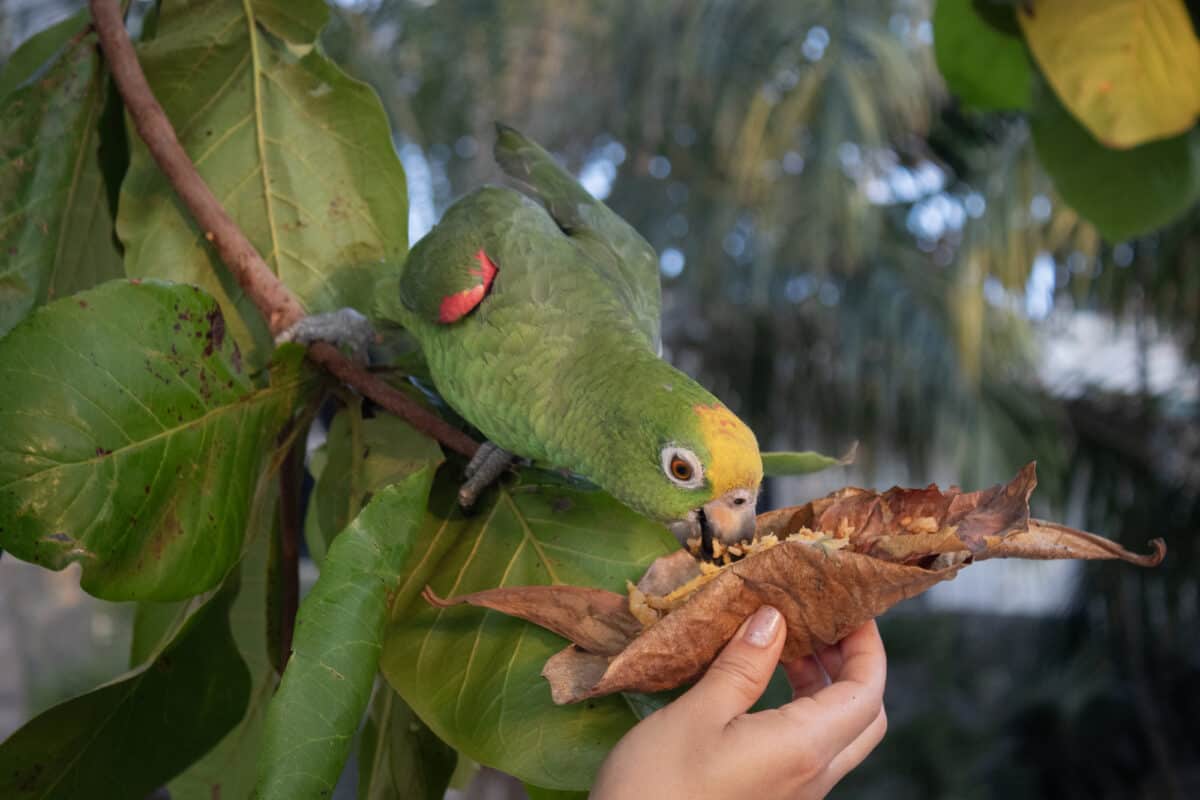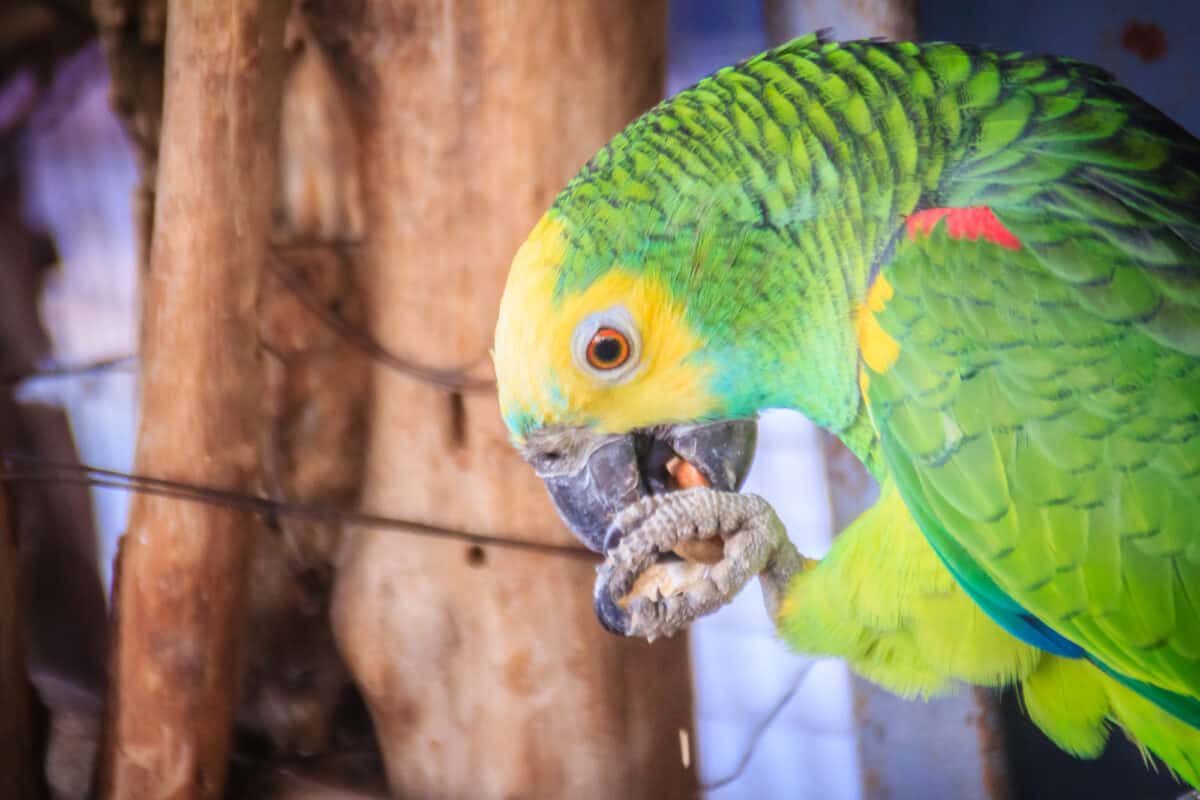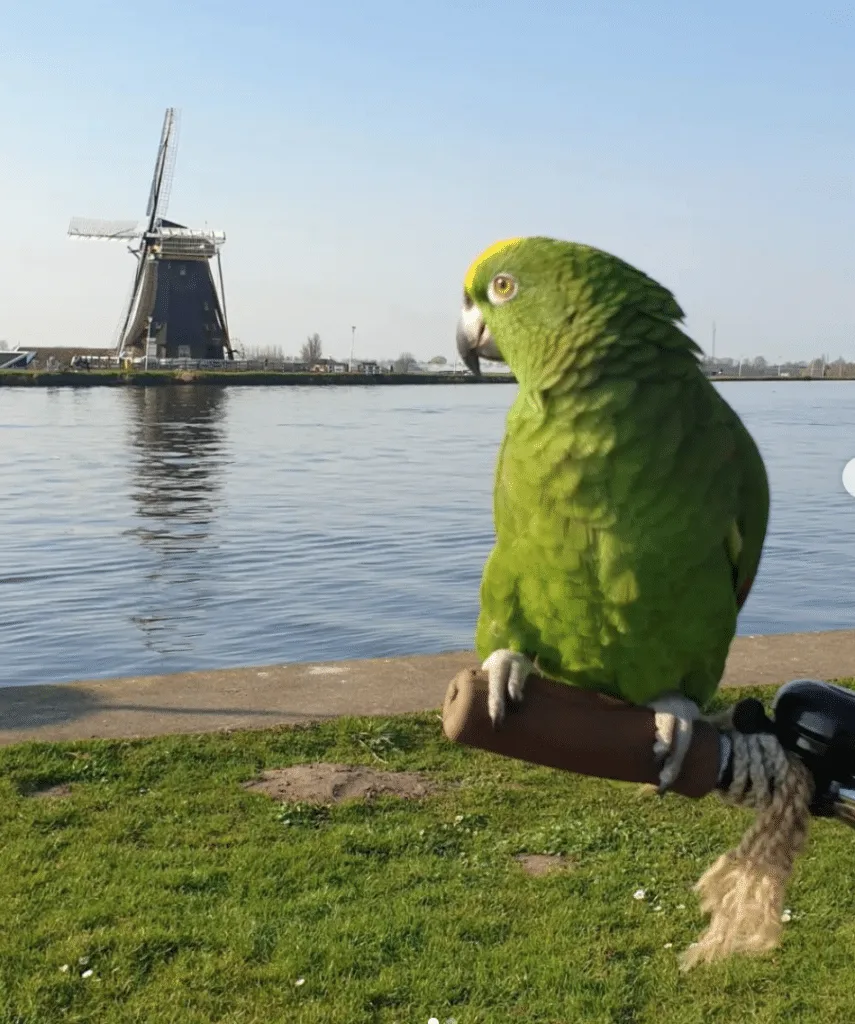This story follows a yellow-crowned parrot named Paco The Amazone who was adopted in 2020 by a family of bird enthusiasts. He was a bit heavy because his wings were clipped when he was young, and he had trouble balancing, probably after spending most of his life in a cage. Unlike other parrots, he was very calm and quiet. After being cleared with a general health exam by a local vet, Paco started his new life, cage-free. His new family takes him on adventures in the forest. If you want, you can watch Paco’s journeys on his Instagram account.
Reintroducing domesticated parrots to the wild is a challenging process that rarely succeeds. These parrots, who are bred and raised in captivity lack the skills, behaviors, and instincts required for them to survive, nevermind thrive, in the wild.

Challenges when reintroducing birds to the wild:

- Lack of Survival Skills: Domesticated birds’ life in captivity does not allow them to learn essential skills needed to survive in the wild. Some examples of these skills are foraging for food, finding shelters, staying clear of predators, and socializing with other wild birds.
- Dependency on Humans: Many domesticated parrots lean on their human owners for food, care, and companionship. This means that they might not be able to care for these needs in the wild by themselves.
- Health Risks: Domesticated parrots can carry diseases that are not found in wild populations. By reintroducing them to the wild could potentially introduce these diseases to local populations, which poses a significant risk to local wildlife.
- Genetic Concerns: Domesticated birds may have different genetic traits compared to their wild families. Often parrots in captivity are bred for specific traits that could lead to genetic differences that may not be compatible with the wild population.
- Habitat Adaptation: Wild parrots adapt to local conditions and environments over time. Domesticated parrots might struggle to adapt to these conditions quickly enough to ensure survival.
Consulting conservationists

Reintroducing domesticated parrots is an admirable conservation effort, however, there are more successful conservation efforts you can focus on. Like helping protect natural habitats, fighting against the illegal pet trade, and supporting the rehabilitation and release of rehabilitated wild parrots.
If you are considering reintroducing a domesticated parrot, it is important to discuss your options with conservation teams and local authorities first. They will provide you with advice and guidance that will ensure the parrot is treated in an ethical and responsible way.
Where do parrots exist in the wild?

Some of the regions where parrots exist in the wild include:
- Central & South America: Countries like Brazil, Peru, Ecuador, and Colombia have various parrots, including the famous macaws, and conures.
- Australia: Australia is home to a unique group of parrots, including the colorful lorikeets, cockatoos, and rosellas. The continent offers a wide range of habitats from rainforests to arid regions for the parrots to thrive in.
- Africa: Parrots live in certain parts of Africa, mainly in the western and central regions. The African Grey Parrot is one of the most well-known species on this continent.
- Southeast Asia: Countries like Indonesia, Malaysia, and the Philippines are home to various parrot species, such as the Eclectus Parrot and the Philippine Cockatoo.
- Pacific Islands: They are found on some Pacific islands, including New Guinea and nearby islands, where they have adapted to various ecological niches.
Fly over to the next topics on birds:
The rarest penguin spotted in Antarctica
Owl lost at sea takes a boat ride home
- Two Tourists Cause a Baby Bison to be Euthanized - May 16, 2024
- Very Reckless Woman Approaches Bison for a Selfie in Yellowstone - May 13, 2024
- Must Watch: Sea Lion Drags Little Child into Sea - May 13, 2024


Lenny
Friday 15th of September 2023
Wow...wonderful story. I am sure Pacco love you and your family to his heartbeat. You saved him and give him the best life. I am also very thankful for what you and your family do for him. May you live a long life to be able to keep accompany him. If you die of old age before him, I am sure he will be very sad. I pray you will live a long long life.